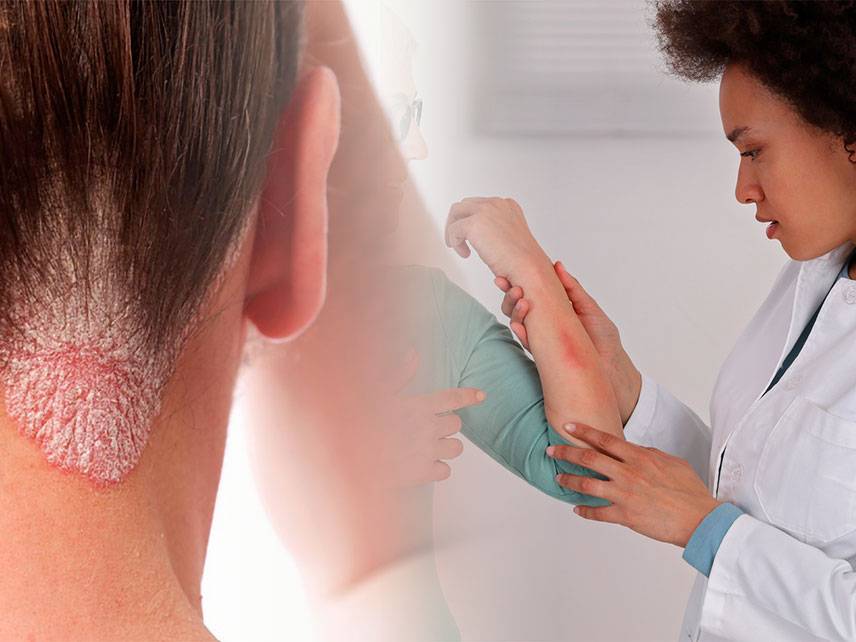Psoriasis is a common, long-term, inflammatory skin condition that affects the entire body. It is characterized by red, scaly patches on the skin that can be itchy, sore, and painful. Although it is not contagious, it can be difficult to manage and can have a significant impact on quality of life.
Signs and Symptoms
The primary sign of psoriasis is raised, red patches on the skin, known as plaques. These patches are often covered with a silvery, white buildup of dead skin cells, known as scale. Plaques can vary in size and severity, and may appear on any part of the body. They are usually found on the elbows, knees, scalp, lower back, and face. Other signs and symptoms include:
• Nail changes, such as yellow spots, pits, or ridges in the nail
• Small scaling spots (commonly seen in children)
• Itching, burning, or soreness
• Thickened, cracked, or ridged nails
• Swollen and stiff joints
Causes
The exact cause of psoriasis is not known, although it is believed to be the result of an overactive immune system. It is thought to be triggered by certain environmental factors, such as stress, infections, and certain medications.
Risk Factors
• Age: Psoriasis is most commonly diagnosed between the ages of 15 and 35, although it can occur at any age.
• Family history: Having a family member with psoriasis increases your risk of developing the condition.
• Stress: Stress can trigger flare-ups of psoriasis.
• Smoking: Smoking increases your risk of developing psoriasis.
• Obesity: Being overweight can increase your risk of psoriasis.
Prevention
There is currently no way to prevent psoriasis, but there are some steps you can take to reduce your risk of flare-ups. These include:
• Practicing stress management techniques
• Avoiding smoking
• Eating a healthy diet
• Exercising regularly
• Avoiding triggers
Diagnosis
Your doctor will likely diagnose psoriasis based on a physical exam and your medical history. Your doctor may also recommend a skin biopsy or other tests to rule out other conditions.
Treatment
The primary goal of psoriasis treatment is to reduce inflammation and itching, and to prevent new flare-ups. Treatment options may include topical creams and ointments, light therapy, oral medications, and biologic drugs.
Coping and Support
Living with psoriasis can be difficult, but there are ways to manage your symptoms. Talking to a counselor or support group can help you cope with the emotional and psychological effects of living with psoriasis.
Complications
Psoriasis may cause complications, such as:
• Skin infections
• Eye problems
• Joint damage
• Psychological distress
Living with Psoriasis
Living with psoriasis can be challenging, but there are ways to manage your symptoms. It is important to follow your treatment plan, take steps to reduce stress, and practice healthy lifestyle habits. Seek support from friends and family, and talk to your doctor about any concerns you may have.
Psoriasis is a chronic condition that can have a significant impact on your quality of life. Although there is no cure, there are treatments available to help manage your symptoms and prevent flare-ups. With the right treatment plan and support, you can live a full and active life despite your psoriasis.
If you or someone you know is living with psoriasis, it is important to seek medical advice to find an effective treatment plan. With the right care and support, you can manage your symptoms and live a healthy and happy life.





